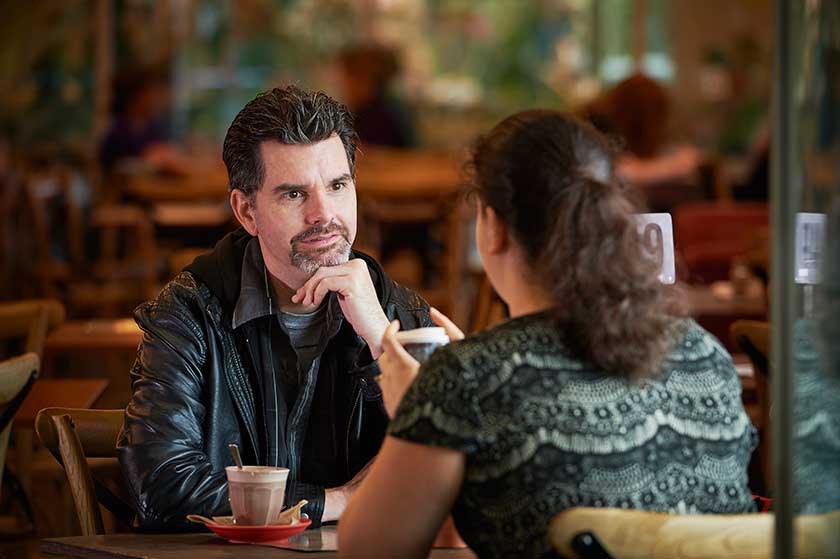It is an important topic to discuss, however at times you may feel helpless in not knowing how to start the conversation, or what to do.
There are some things to consider when talking to someone about their emotional wellbeing, and this may include that the person may not be aware of the problem, or may not be ready to talk about the problem.
Other times people may be ready to talk about what’s going on for them, however what they discuss may be confronting or upsetting for you, so assessing your readiness to engage in the conversation is just as important.
1. Make sure you are ready
When initiating the conversation about your concerns one key factor to consider is your readiness to hear and engage in the conversation when the information you receive may be confronting or upsetting. It is important to make sure you have support available to help you manage the impact the information may have on you.
2. Be open and honest
When talking to your loved one, mention specific things that you are concerned about, or changes you have noticed.
Try and be relaxed and compassionate in your approach, and ease into the conversation by asking simple questions. It is OK to tell your loved ones that you are concerned, and how that makes you feel.
Let your loved one know that you are always available and then follow through.
You can also start the conversation about seeking professional help. However bear in mind that they may not be ready to take that step yet.
3. Support without judgement
Just because you ask, does not mean that your loved one will want to speak to you. It is important to respect their needs, as they may not be comfortable talking about this with you.
Do not take it personally. You may suggest they find someone else to speak with. You can also offer to assist them find professional help and attend the appointments for moral support. Let their preferences guide you here. Once you offer, it is vital that you follow through with giving support. Check in with your loved one regularly to see how they are going.
Similarly, they may not be ready to face this yet. So give them space, but check in with them later and see how they are going, and gently encourage action. When they are ready to talk, just listen. Often they are not looking for a solution so do not feel the need to fix them.
It takes courage for your loved one to open up so do not judge them for what they might say.
4. Choose your moment carefully
When beginning the conversation, make sure you are in an area which is private enough for your loved one to feel comfortable to open up. It should be somewhere you can stay and not be interrupted.
If your loved one is ready to seek help, you can send through an enquiry to find out more about our services and how to access our care at mentalhealth.sjog.org.au.











